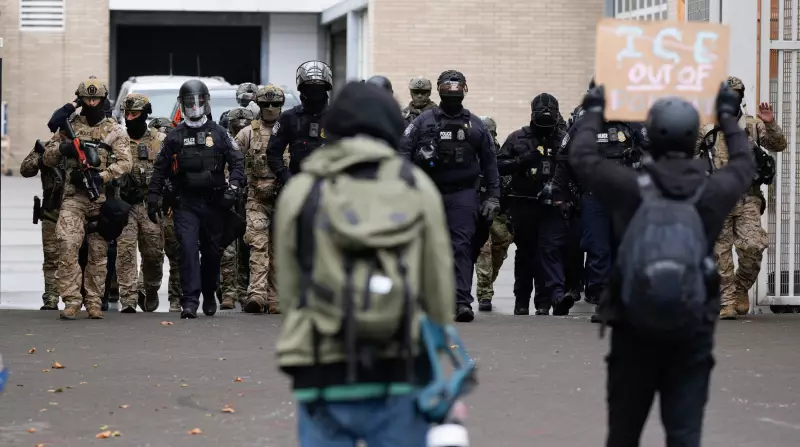
A federal judge in Oregon has delivered a significant legal blow to the Trump administration, ruling it failed to meet the legal requirements for deploying the National Guard to Portland. The decision came after the city and state sued in September to block the deployment, culminating in a three-day trial.
The Legal Basis for the Ruling
U.S. District Court Judge Karin Immergut, who was appointed by President Trump, issued a 106-page opinion following the trial. The central question was whether protests at the city’s U.S. Immigration and Customs Enforcement (ICE) building met the strict conditions for using the military domestically under federal law.
While acknowledging that a president is entitled to "great deference" in such decisions, Judge Immergut found that President Trump did not have a legal basis for calling up the Guard. She determined he did not establish that there was a rebellion, a danger of rebellion, or that he was unable to enforce the law with regular forces.
Contrasting Portrayals of the Portland Protests
The Trump administration had argued that the troop deployment was necessary to protect federal personnel and property, characterizing the protests as a "rebellion" or "danger of rebellion." Testimony revealed that federal officials from the Federal Protective Service described staffing shortages and instances where the facility was damaged, leading to the ICE building closing for three weeks over the summer.
However, the judge found the administration's assessment of the situation, which included President Trump describing Portland as "war-ravaged" with "fires all over the place," to be "simply untethered to the facts." Attorneys for Portland and Oregon argued, and police officials testified, that local law enforcement had been able to respond to the protests.
Notably, a key Federal Protective Service official testified under the initials R.C. due to safety concerns. While he stated a troop deployment would alleviate staff strain, he also revealed he was "surprised" by the deployment, did not request troops, and was not consulted by Homeland Security Secretary Kristi Noem or President Trump.
Broader Implications and Next Steps
This ruling is part of a wider pushback from Democratic cities, including Chicago, which have filed similar lawsuits. They argue that such deployments violate states' sovereignty and that the legal threshold for using troops has not been met.
Judge Immergut had previously issued two orders in early October blocking the deployment leading up to the trial. The 9th U.S. Circuit Court of Appeals has also ordered that the troops not be deployed pending its further action. The factual record developed during this trial could now serve as the basis for further appellate rulings on the limits of presidential power in domestic military deployments.





